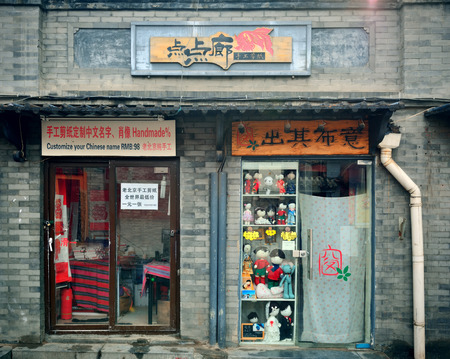Introduction – East Meets West on the British High Street
In the heart of Britain’s bustling towns and villages, a quiet revolution is unfolding. Picture a charming café tucked between a traditional bakery and an indie bookshop, its windows adorned with jade plants and gentle water features. Here, on the British high street, the wisdom of ancient Feng Shui and the philosophy of Yin and Yang are finding their place among fish-and-chip shops and vintage boutiques. This is not just a fleeting trend, but rather the blossoming intersection where centuries-old Eastern practices blend seamlessly with the dynamic rhythm of modern British small business life. As we set out to explore this unlikely union, we invite you into a story woven from balance, prosperity, and the subtle energy flows that shape both spaces and success. The stage is set for a journey where harmony meets hustle, creating new possibilities for growth in the uniquely spirited world of Britain’s independent entrepreneurs.
2. The Spirit of Place – History, Space, and Energy in British Shops
When you step into a British small business—whether nestled within the timeworn brickwork of a Georgian terrace or the sleek lines of a modern pop-up—the atmosphere is steeped in more than just commerce. The very bones of these premises pulse with the spirit of place, a blend of history, architecture, and unseen energy that shapes daily life. In the context of Feng Shui, the flow of Qi (pronounced “chee”) is not just an abstract Eastern philosophy; it is something you can sense in the uneven floorboards, high sash windows, and even the way light falls on vintage counters.
Each type of shop space carries its own energy signature. The age and layout of British buildings lend themselves to unique opportunities—and challenges—for harmonising Yin and Yang. In an old Victorian storefront, perhaps once a grocer’s or haberdashery, there may be pockets where stagnant Qi lingers in forgotten corners or under heavy wooden beams. Meanwhile, converted railway arches might channel energetic movement along their curves, but struggle with cold draughts and echoes.
Understanding how history and structure influence Qi is as vital as any business plan. Consider this:
| Premises Type | Historic Features | Potential Qi Flow | Feng Shui Opportunity |
|---|---|---|---|
| Georgian Terrace Shop | Tall ceilings, large sash windows, original fireplaces | Light-filled but prone to draughts; strong vertical flow | Balance warmth (Yang) with soft textures (Yin); use mirrors to reflect light |
| Victorian Storefront | Narrow layout, deep rooms, ornate cornices | Pockets of stagnant air; hidden nooks absorb energy | Open shelving for circulation; plants to refresh Qi in corners |
| Modern Pop-Up Unit | Open-plan, minimal partitions, glass frontage | Dynamic but sometimes chaotic flow; lack of grounding | Create zones with rugs or displays; add earth tones for stability |
| Converted Industrial Arch | Curved ceilings, exposed brick, limited natural light | Energy moves in waves; risk of echoing emptiness | Add layered lighting; introduce greenery to soften harsh edges |
The secret lies in attuning oneself to both the whisper of history and the hum of activity—a mindful recognition that every British shop is a living story shaped by centuries of trade and transformation. By honouring the spirit of place through considered Feng Shui practices, today’s small business owners invite prosperity not only into their tills but also into their daily experience. The result? A space where customers linger longer, staff feel rooted yet energised, and every transaction is touched by the quiet magic of balance.

3. Finding Harmony – Yin and Yang at Work in British Commerce
Step into a thriving café on a leafy London street or an independent boutique nestled in the heart of Manchester, and you’ll sense something intangible at play—a gentle balance that feels just right. This is where the ancient wisdom of Yin and Yang quietly weaves through the fabric of modern British small business. In these spaces, harmony isn’t just aesthetic; it’s strategic, blending intuition with the sharp edge of commercial acumen.
The Gentle Flow of Yin
Yin energy embodies calm, receptivity, and nurturing—a quality often found in the welcoming atmosphere of local businesses. Picture a café owner who greets every guest with genuine warmth, creating a haven from the city rush. The décor features soft lighting, natural textures, and inviting corners that encourage lingering conversations. Here, intuition guides decision-making: from choosing which homemade cakes to bake, to sensing when regulars need a quiet nook or a listening ear. This gentle approach fosters loyalty and community spirit—two pillars of success in the British high street tradition.
The Assertive Drive of Yang
Yet, without Yang—the active, decisive force—no business can thrive. Successful start-up studios across Bristol or Edinburgh harness this energy by embracing bold ideas and calculated risks. Whether it’s launching a new product line or negotiating supplier contracts, Yang shows itself in quick adaptation to market changes and the courage to stand out amidst competition. These businesses channel their ambition through well-crafted branding, innovative marketing campaigns, and clear-eyed financial planning—all while staying true to their core values.
Blending Intuition with Acumen
The magic happens where Yin and Yang meet: the intuitive understanding of what customers need is matched by practical steps to deliver it efficiently and profitably. A boutique owner might intuitively select artisan products that speak to local tastes (Yin), then leverage data analytics to optimise inventory turnover (Yang). This subtle dance—soft yet strong, receptive yet proactive—is echoed in countless British small businesses that blend heritage with innovation, creating environments where both people and profits flourish.
4. Practical Feng Shui – British Solutions with Eastern Sensibility
While the rolling hills of Yorkshire or the bustling streets of London might seem worlds apart from ancient Chinese wisdom, British small business owners are finding creative ways to integrate Feng Shui’s principles with a distinctly local flavour. The heart of this practice lies in harmonising energy flow within a space—balancing Yin and Yang to foster wellbeing, productivity, and prosperity. But what does this look like in a modern British context? Let’s take a guided walk through some tangible adaptations that bring Eastern sensibility to everyday British business life.
The Orientation of the Till: Welcoming Prosperity
In traditional Feng Shui, the till or cash register symbolises the financial heartbeat of a business. In Britain, shopkeepers may position their tills so they face the entrance but aren’t directly aligned with it—inviting wealth in without letting it slip straight back out. For those trading from charming market stalls or narrow high-street nooks, even a subtle tilt can redirect positive chi and gently encourage customers to linger (and spend).
Table: Classic British Objects Reimagined through Feng Shui
| Object | Traditional Use | Feng Shui Adaptation |
|---|---|---|
| The Kettle | Brew for staff comfort and hospitality | Placed in a communal area facing the main workspace to promote warmth and unity, enhancing Yang energy during those grey winter mornings. |
| The Till | Transaction hub near the entrance | Angled towards the door but not directly in line, attracting abundance while maintaining steady financial flow. |
| The Noticeboard | Display offers, news, and events | Located on an east-facing wall to harness morning light (and energy), inspiring creativity and fresh ideas. |
| The Umbrella Stand | Essential for rainy days, kept by the door | Ensures smooth transition between outdoors (Yang) and indoors (Yin), symbolising flexibility and preparedness. |
Infusing Harmony into Everyday Routines
A British business day often starts with “putting the kettle on,” gathering staff for a quick cuppa before opening up shop. Here, Feng Shui wisdom suggests placing mugs and tea caddies in accessible spots, encouraging social interaction and uplifting spirits—a subtle nod to balancing Yin (restoration) with Yang (action). Likewise, clutter is swept away promptly; open walkways allow energy to circulate freely, especially important during busy Saturday rushes or after delivery lorries rumble past.
Cultivating Connection: From Window Boxes to Welcome Mats
British sensibility also shines in outdoor touches. Window boxes brimming with lavender or rosemary not only add curb appeal but channel positive chi indoors. A well-placed welcome mat does more than catch muddy boots—it signals hospitality, grounding both staff and visitors as they cross the threshold. Through these thoughtful tweaks, British small businesses create environments where East meets West—where every teapot, ticket stub, and terracotta pot finds its harmonious place.
5. Case Study – Stories from the Queen’s Own Street
Wander down Queen’s Own Street in a charming corner of Bristol and you’ll find more than just red-bricked shopfronts and the scent of fresh scones. Here, modern British entrepreneurs have woven ancient Feng Shui wisdom and the dance of Yin and Yang into their daily grind—often with spellbinding results. Take for instance Clara, the florist, who once battled endless clutter and stagnant sales. After a mystical consultation with a local Feng Shui practitioner, she reoriented her till to face the door, adorned her shop with gentle water features, and balanced dark wooden shelves with vibrant floral displays. The result? Not only did foot traffic bloom, but Clara swears by the “lightness” that now fills her little haven.
A Touch of Yin in Yorkshire
Meanwhile, in a tiny tearoom nestled amidst the moors, Geoffrey and Millie struggled to keep their business afloat amid fierce competition. Inspired by tales of harmony from a friend’s travels in Hong Kong, they embraced Yin energy: soft lighting, gentle music, and flowing layouts that encouraged guests to linger. Their pragmatic approach—grounded yet curious—brought not only returning customers but also a sense of calm resilience in tough economic times.
The Unexpected Turn on Queen’s Own
Then there’s Tariq, the tech whiz, whose start-up nearly fizzled out before it began. One rain-soaked evening, after overhearing pub chatter about energy flow, he decided to reposition his workspace according to Yang principles—brightening up corners with mirrors and lively colours. To his delight, productivity soared; team meetings became more dynamic, ideas sparking like fireworks on Bonfire Night. Tariq credits this unexpected shift for his company’s first big contract—proof that sometimes the mystical meets the practical at just the right moment.
Lessons From Lived Experience
The stories threading through Queen’s Own Street are both magical and grounded in everyday British grit. These entrepreneurs remind us that embracing balance—between tradition and innovation, intuition and analysis—can lead to unexpected harmony and prosperity. Whether you’re serving tea or coding apps, a bit of ancient wisdom might just be your secret ingredient for success.
6. Conclusion – A Modern British Alchemy of Old and New
In the heart of Britain’s bustling high streets and cosy co-working corners, a subtle alchemy is taking place—a blend of age-old wisdom and modern enterprise. The journey of integrating Feng Shui, the principles of Yin and Yang, and contemporary business strategies is not just about rearranging desks or choosing harmonious colours; it’s about crafting environments where both logic and intuition thrive. This dance between tradition and innovation invites British small business owners to listen carefully—not only to their spreadsheets and forecasts but also to the quieter stirrings of inspiration that emerge when mind and spirit align.
To embrace this alchemy means recognising that every decision, from branding to workspace design, holds the potential to infuse life with balance and purpose. It’s in the gentle placement of a plant in a sunlit window, the collaborative hum around a communal table, or the pause for reflection before launching into action. Here, British pragmatism meets ancient insight, forming a unique rhythm—one that honours heritage while celebrating forward-thinking ambition.
So as you shape your business’s future, remember: you are both architect and alchemist. Tune in to the wisdom that has travelled across centuries and continents, but do not shy away from fresh ideas that challenge convention. Let your enterprise be a living story—rooted in tradition yet always reaching for new horizons, guided by both head and heart. In this way, the modern British small business becomes more than an economic venture; it transforms into a vibrant testament to the enduring power of harmony, adaptability, and soulful innovation.


